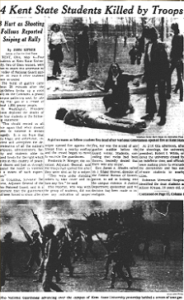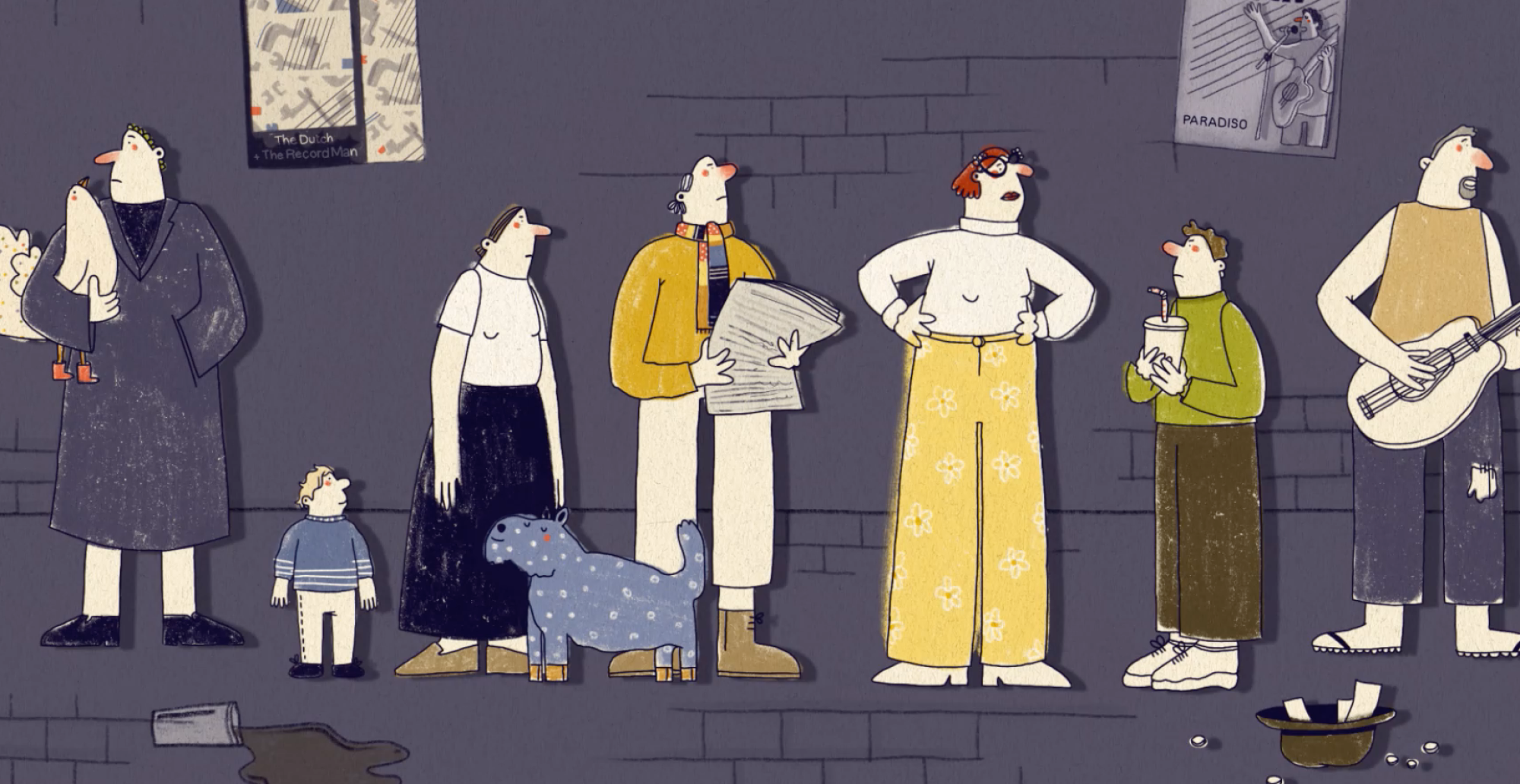
Klaas got an email from A., an old friend who was a booking agent for The Dutch long ago. He lives in a small hamlet in the Corrèze. A. wrote about the new CD that Klaas had sent him. At first he had some doubts about the vocals, but that disappeared after listening a few times. He was full of praise for the songs, the arrangements, the lyrics. Like I said, A. is an old friend. There was something he noticed in You Can’t Be Wrong: is there a quote from Neil Young’s song Ohio after three minutes, or is that pure coincidence? Clever. The first four lines of Ohio read:
Tin soldiers and Nixon coming
We’re finally on our own
This summer I hear the drumming
Four dead in Ohio
Those lines have an effect on me. I don’t know why exactly, because at first glance they seem a bit awkward. Neil Young wrote them in 1970 after a shooting at Kent State University, where four students were killed during rally. Nixon had little to do with it. According to Wikipedia, the National Guardsmen who opened fire acted under the command of the governor of Ohio, Jim Rhodes. But four years before he had to resign because of Watergate, President Nixon was already a favourite target for leftwing America because he had not ended the Vietnam War.
So besides their poetic quality, those first four lines are at least tendentious. But in addition, I find them a bit cliché: “I hear the drumming” as a metaphor for ominous things. I guess it’s the words in combination with the Canadian bard’s plaintive voice that make me get goose bumps at the beginning of Ohio. And without much thought, these lines entered into the last part of You Can’t Be Wrong. With other chords, but the same melody.
Like Copy That Line, You Can’t Be Wrong is about online privacy, an issue I strongly care about since the time I was a manager of the Database Marketing department of a large bank. If you want to know more about what can go terribly wrong with online transparency, you should read The Circle by Dave Eggers; by comparison my lyrics are mere footnotes. But the last lines of You Can’t Be Wrong read:
Did your mother tell you
What you need to know
That we won’t be evil till we grow
A bit too slow
That is about Google, if you didn’t figure that out (*). And I think this somehow fits perfectly with those menacing lines from Ohio.
A week before the album was going to press, I asked F., our contact at Sony, if I needed permission to sing the four lines from Ohio. I added that I would like to compare it with a quote on the first page of a novel: a kind of homage to an admired writer. Certainly there was no need for a formal permission? But F. responded with “always ask permission,” and I could have seen that coming. To record labels, risks are the same as to banks: better not. So we were suddenly pressed for time. F. said the copyright owner would probably allow it, because they would get some money out of it. But it was not easy to identify the publisher. Eventually I managed to reach a Belgian lady who works at Strictly Confidential, a company that represents the US publisher Broken Arrow Music in the Benelux. Four days later, Broken Arrow Music answered with the following undoubted standard response:
“Neil feels very strongly about not approving ancillary uses of this song. It will never be approved. Sorry.”
I wrote back to the Belgian lady that I had just recovered from an outburst of anger and cursing and that I wanted to nevertheless thank her very much for her swift reply. That same evening I recorded four new lines in the same melody:
I’m telling you plain and simple
We could have been on that train
If only we wouldn’t surrender
To the man with the ball and chain
I think it’s amazing that A. still recognised Ohio in those lines. I bet Shazam can’t!
February 26, 2017
(*) The internal corporate motto of Google once was “Don’t be evil”.
